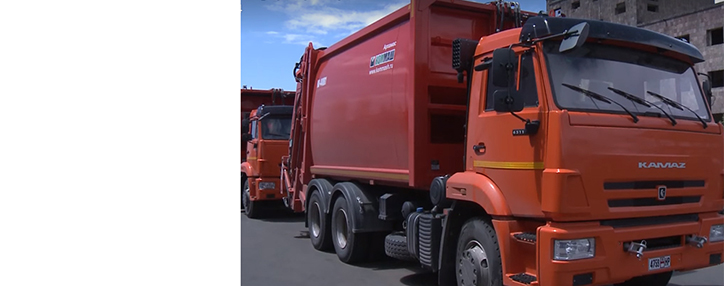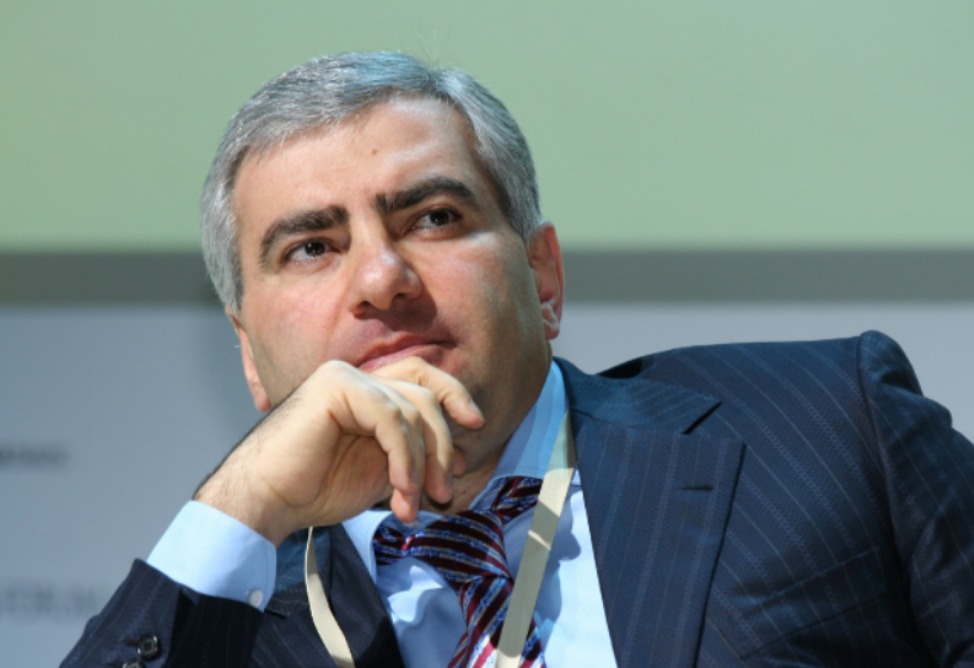EBRD, EU and E5P to launch landfill construction in Armenia

YEREVAN, April 15. /ARKA/. The European Bank for Reconstruction and Development (EBRD) and the European Union (EU), in partnership with the Ministry of Territorial Administration and Infrastructure of Armenia, have launched today the construction of a new solid-waste landfill facility in Hrazdan, a town in central Armenia that serves as a transport hub between the capital, Yerevan, and the north of the country, EBRD said in a press release today.
The ceremony was attended by Suren Papikyan, Minister of Territorial Administration and Infrastructure of Armenia; Her Excellency Andrea Wiktorin, Ambassador of the European Union to the Republic of Armenia; Dimitri Gvindadze, EBRD Head of Armenia; His Excellency Patrik Svensson, Ambassador of Sweden to Armenia, His Excellency Pawel Cieplak, Ambassador of Poland to Armenia, and other distinguished guests, including representatives of the Czech Republic and Slovak Republic.
The new solid-waste landfill facility will meet EU standards and make a major contribution to environmental improvements in Hrazdan and the 11 other municipalities it will serve. The EBRD has extended a €5.5 million loan to construct the facility, alongside a €3.5 million grant from the EU Neighbourhood Investment Facility and a €2 million grant from the Eastern Europe Energy Efficiency and Environment Partnership (E5P) fund.
The new facility will be equipped with modern solid-waste management processes, encompass the collection and disposal of municipal solid waste and provide major environmental and social benefits for local residents and businesses. It will be located near the Yerevan-Sevan highway and cover seven municipalities in the Kotayk region (Hrazdan, Abovyan, Nor Hachn, Byureghavan, Charentsavan, Yeghvard and Tsakhadzor) and five in the Gegharkunik region (Sevan, Vardenis, Gavar, Martuni and Chambarak).
This is the EBRD’s first solid-waste project in Armenia and supports the government’s plans to modernise and upgrade the country’s waste management system to the standards of the Confederation of European Pest Management Associations.
To date, the EBRD has invested more than €1.1 billion in 158 projects in Armenia’s financial, corporate, infrastructure and energy sectors, with 88 per cent of those investments in the private sector.
The EU is a key reform partner in Armenia. Its current, substantial Armenian portfolio focuses on supporting the government’s reform agenda, private-sector development, green growth, human capital and regional development. The EU has stepped up its support for Armenia, almost doubling its annual grant allocation to €65 million a year in 2019 and 2020. In addition, since 2014, more than €1 billion has been invested in the country in the form of blended loans and grants to support green growth, agriculture and the transport sector.
The E5P is a multi-donor fund operating in the all of the Eastern Partnership countries. The EU is its largest overall contributor, with committed funds of €95 million annually. The EU has committed €10 million to the E5P in Armenia, boosted by additional commitments from the Czech Republic, Denmark, Finland, Germany, Lithuania, Norway, Poland, the Slovak Republic, Sweden and the TaiwanBusiness-EBRD Technical Cooperation Fund. The pledged funds are to help Armenia improve its energy efficiency, energy security and economic competitiveness and boost policy dialogue, while having a positive impact on the environment. Armenia is also a contributor to the E5P, with committed funds of €1 million a year.
The main objective of the initiative is to use grants to leverage loans from international financial institutions for municipal energy-efficiency and environmental projects, such as the rehabilitation of water and wastewater systems, solid-waste management, street lighting and energy-efficiency measures in public buildings. -0-



